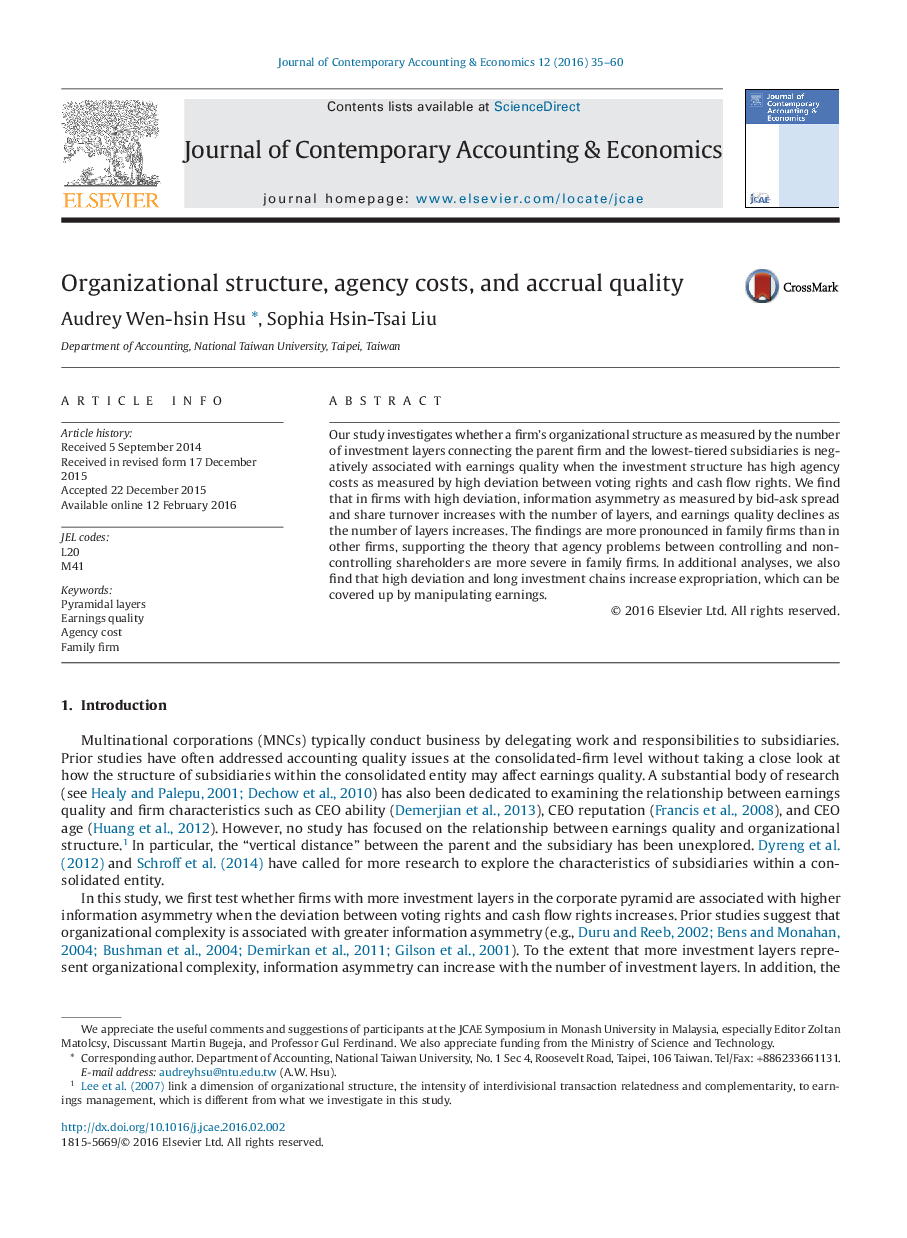| Article ID | Journal | Published Year | Pages | File Type |
|---|---|---|---|---|
| 5092809 | Journal of Contemporary Accounting & Economics | 2016 | 26 Pages |
Abstract
Our study investigates whether a firm's organizational structure as measured by the number of investment layers connecting the parent firm and the lowest-tiered subsidiaries is negatively associated with earnings quality when the investment structure has high agency costs as measured by high deviation between voting rights and cash flow rights. We find that in firms with high deviation, information asymmetry as measured by bid-ask spread and share turnover increases with the number of layers, and earnings quality declines as the number of layers increases. The findings are more pronounced in family firms than in other firms, supporting the theory that agency problems between controlling and non-controlling shareholders are more severe in family firms. In additional analyses, we also find that high deviation and long investment chains increase expropriation, which can be covered up by manipulating earnings.
Related Topics
Social Sciences and Humanities
Business, Management and Accounting
Business, Management and Accounting (General)
Authors
Audrey Wen-hsin Hsu, Sophia Hsin-Tsai Liu,
